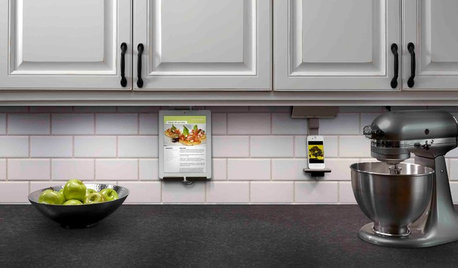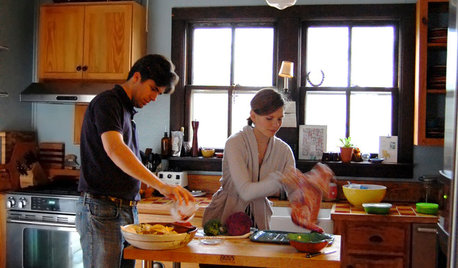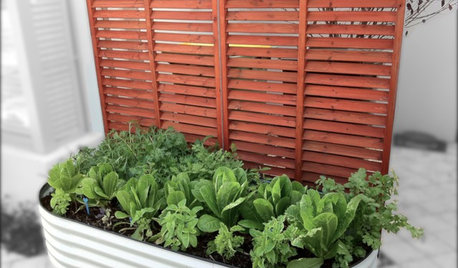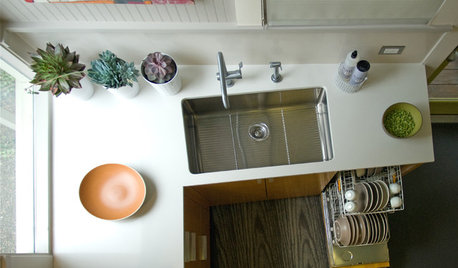RECIPE: does anyone follow a low-carb vegetarian diet?
Carol
22 years ago
Related Stories

KITCHEN DESIGNHouzz Call: What’s Cooking in Your Kitchen?
Most of us turn to recipes, videos and culinary shows when we cook. Where do you set your cookbook, tablet or TV screen?
Full Story
FARM YOUR YARDHow to Grow Vegetables in Containers
Get glorious vegetables and fruits on your patio with a pro’s guidance — including his personal recipe for potting mix
Full Story
KITCHEN DESIGN10 Tips for Planning a Galley Kitchen
Follow these guidelines to make your galley kitchen layout work better for you
Full Story
DECLUTTERINGFoolproof Ways to Declutter Your Kitchen
If you find yourself fumbling through cupboards to find what you’re looking for, it’s time to take action with these simple steps
Full Story
HOUSEKEEPING7-Day Plan: Get a Spotless, Beautifully Organized Living Room
A task a day sends messes away. Take a week to get your living room in shape
Full Story
ENTERTAINING8 Stress-Busting Tips for Hosting Small Gatherings
Make entertaining easy with these ideas for casual get-togethers
Full Story
ORGANIZINGDo It for the Kids! A Few Routines Help a Home Run More Smoothly
Not a Naturally Organized person? These tips can help you tackle the onslaught of papers, meals, laundry — and even help you find your keys
Full Story
FEEL-GOOD HOME21 Ways to Waste Less at Home
Whether it's herbs rotting in the fridge or clothes that never get worn, most of us waste too much. Here are ways to make a change
Full Story
LIFEIs Cabin Fever Real? Share Your Story
Are snow piles across the U.S. leading to masses of irritability and boredom? We want to hear your experience
Full Story
HOUSEKEEPINGHow to Fix a Stinky Garbage Disposal
No plumber’s fee or even a trip to the hardware store is required with these easy solutions
Full Story





testle_excite_com
whaleyj_anglefire_com
Related Professionals
Reading Landscape Architects & Landscape Designers · Medford Landscape Contractors · Matthews Landscape Contractors · Beverly Hills Landscape Contractors · Brandon Landscape Contractors · Eureka Landscape Contractors · Fairview Landscape Contractors · Morrisville Landscape Contractors · New Braunfels Landscape Contractors · Saint Paul Landscape Contractors · Shenandoah Landscape Contractors · Coral Gables Window Contractors · Emeryville Window Contractors · Framingham Window Contractors · Port Chester Window Contractorsfoxglove159_hotmail_com
anne_primeview_com
changa
Corrie
RoxieL
the4toofs
salena
sarahstar
lpinkmountain
looser
stephb2010
knj702_aol_com
Pyewacket